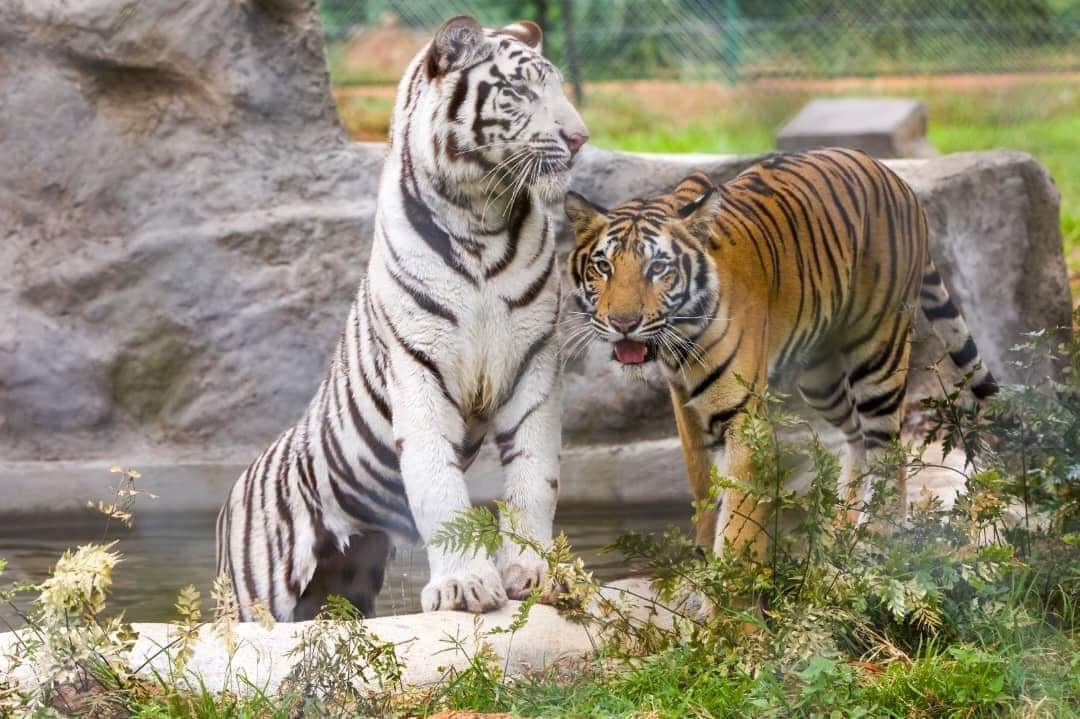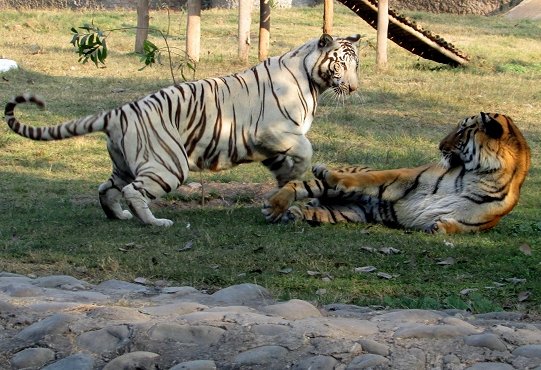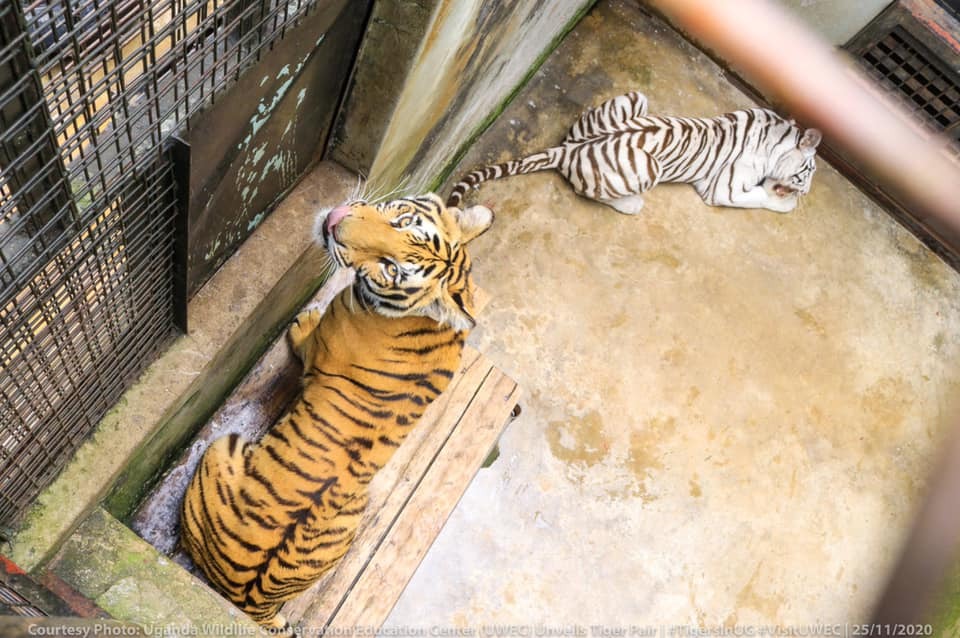
After exchanging 25 Monkeys for these two Tigers on 3rd December, 2020, the Uganda Wildlife Conservation Education Center (UWEC) has now given Ugandans a chance to bid and name these beautiful animals currently at UWEC in Entebbe.
After UWA Officially welcomed the largest member of the cat family, back to Uganda when two tigers were unveiled by the Executive Director UWEC Dr.James Musinguzi at their new home at UWEC, Entebbe, the public started flocking the zoo to have a glance.
Confirming the development, the UWEC Public Relations Officer Eric Ntalumbwa said:
"The pair of tigers, male and female aged 2 years and 3 months from ‘Mystic Monkeys and Feathers Wildlife park ‘in South Africa, arrived before the national lockdown in March 2020 and have since been under the watchful eye of our animal caregivers and veterinary specialists at the quarantine and veterinary hospital’. They were exchanged for 25 Colobus and De Brazzas monkeys abundant in Uganda, and all UWEC had to pay was $2000 in freight costs according to Ntalumbwa.”
From the 1960s to 1980s when the Center was popularly known as the Entebbe Zoo, exotic species such as tigers and brown bears were part of the collection of wild animals kept in captivity for exhibition.
UWEC lost Ush. 2.5 billion (about $680,000) since temporary closing in March 2020 to June 2020, and thereafter it has lost Ush. 2 billion (about $545,000) since July 2020 to Date because of the COVID-19 pandemic.
“We are glad to welcome the tigers to UWEC after six decades. The Bengal tigers sometimes called Indian tigers is a species that resonates with the Indian community living in Uganda which has over the months proven to be loyal to the animals at UWEC,” said Musinguzi.

The Center has appealed to corporates that are associated with the tiger brand and all well-wishers to sponsor the pair including having the priviledge of naming them.
Tigers are extremely territorial species, so the pair will get a chance to explore the tiger habitat, which has been specially constructed to suit their behavior.
In the wild, Bengal tiger habitats are tropical rainforests, marshes, and tall grasses. Tigers rest in the shade during the day and hunt at dusk or dawn. The Bengal tigers have been spotted in the shade or around bodies of water to cool off.
